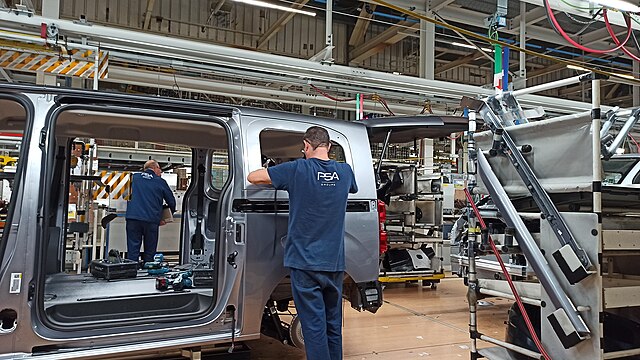Stellantis announced Friday that it will soon lay off around 400 employees amid its challenging transition to producing electric vehicles (EVs).
The layoffs for one of America’s biggest automakers become effective on March 31 and are white-collar jobs largely at the company’s headquarters and a chemical center in Auburn Hills, Michigan, covering engineering, technology and software roles, Stellantis told the Daily Caller News Foundation. Stellantis has so far waited to bring its electric offerings to market, avoiding heavy sales losses accrued by competitors like Ford, which lost $4.7 billion on EVs in 2023.
“As the auto industry continues to face unprecedented uncertainties and heightened competitive pressures around the world, Stellantis continues to make the appropriate structural decisions across the enterprise to improve efficiency and optimize our cost structure,” Stellantis told the DCNF. “While we understand this is difficult news, these actions will better align resources while preserving the critical skills needed to protect our competitive advantage as we remain laser focused on implementing our EV product offensive and our Dare Forward 2030 strategic plan.”
Stellantis has previously said that it plans to have 100% of sales in Europe be electric and 50% of sales in the U.S. be electric by 2030. The layoffs represent just 2% of the company’s engineering, technology and software roles, Stellantis told the DCNF.
Carlos Tavares, CEO of Stellantis, has previously said that EVs currently cost around 40% more to make than traditional vehicles and that the company is looking for ways to bring costs down, according to The Associated Press. The automaker plans to launch 18 new EV models this year but notes that the prices are not where Stellantis would like them to be.
Stellantis announced in December that it could be laying off thousands of employees from plants in Detroit and Ohio as it adjusts production to comply with environmental regulations in California. The mandated standards in California require cars in the state to have fewer emissions, coercing automakers into hastening a transition to EVs.
The Biden administration is also pushing for an expedited EV transition, imposing harsh limits over the next decade on tailpipe emissions. On Wednesday, regulators rolled back the timeline slightly for the next few years on emission restrictions, giving automakers more time to create their EV line-up, but did not change their final goal of requiring around 67% of all light-duty vehicles sold after 2023 to be EVs or hybrids.
Will Kessler on March 22, 2024

